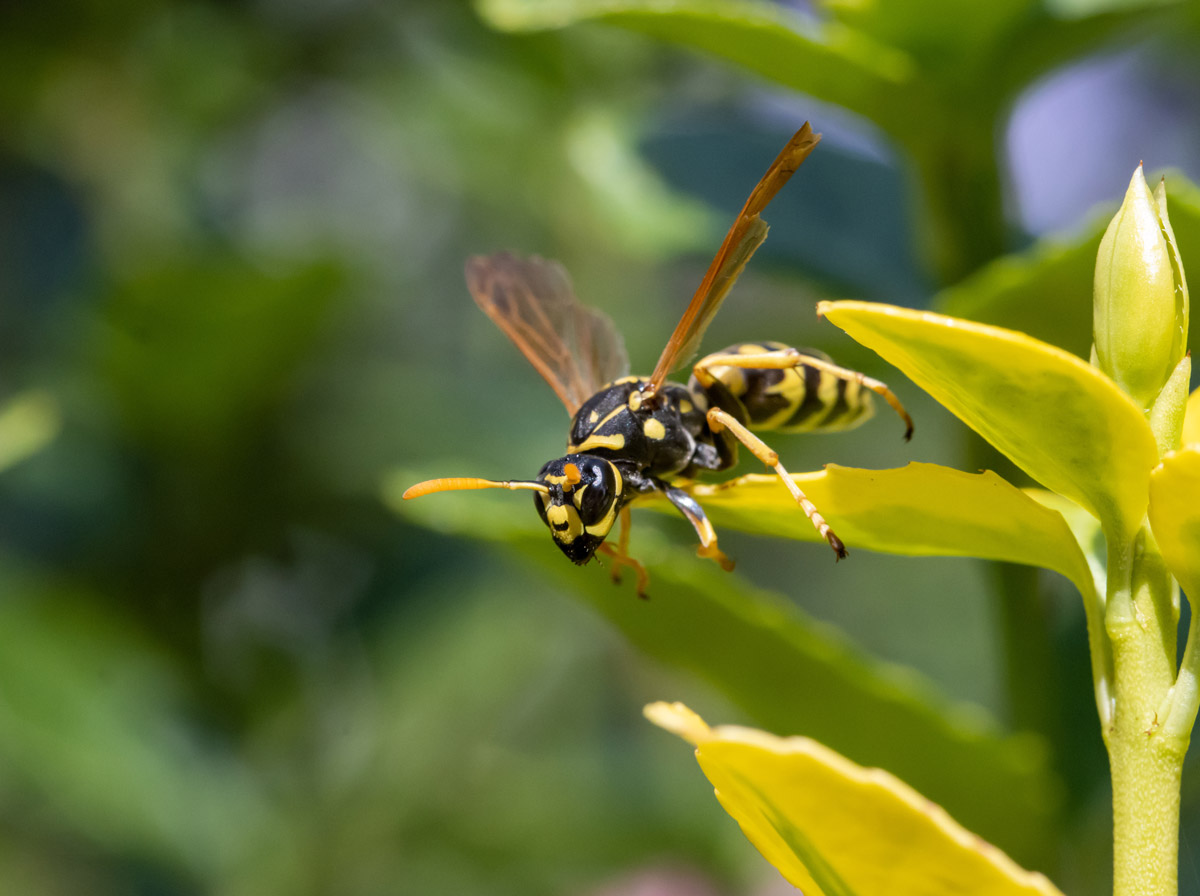2025
What to Know About Wasp Stings

With summer half over one of the season’s most prevalent pests, wasps, are about to become a lot more aggressive. This aggression means that wasps will be more prevalent around summer BBQs and other outdoor gatherings as they search for food, which leads to an increased risk of wasp stings occurring. In today’s blog we will be looking at what you need to know about wasp stings.
Symptoms of a Wasp Sting
When wasps sting, they inject a small amount of venom but usually do not leave a stinger behind like bees do. A wasp sting tends to look like a raised red welt occasionally with a red center caused by a drop of blood where the stinger entered. The most common symptoms that follow a wasp sting are pain, a burning sensation, swelling and itching all concentrated around the location of the sting. Some people may have an allergy to the venom and they can experience more serious symptoms that may even result in a hospital visit. Symptoms that may indicate an allergic reaction are hives, difficulty breathing and occasionally collapse from shock.
How to avoid Wasp stings
Wasps usually only sting when they or their nest are threatened so one of the easiest ways to avoid wasp stings is to avoid areas where wasps gather as that may indicate the presence of a nest nearby. Other tactics for avoiding wasp stings include wearing footwear when you walk on grass and not consuming any sugary beverages that have been left unattended and uncovered for a significant period of time. You should also avoid swatting at the wasps as this can provoke them to sting especially in late summer when their behavior becomes more aggressive.
How to treat Wasp Stings
There are several basic home remedies that exist to treat most wasp stings. These include washing the area with soap and water to prevent any sort of skin infection, using a cold compress or cold pack to relieve the pain and swelling caused by the sting, if you are having a mild allergic reaction that can be treated with over the counter anti-histamines and over the counter pain medication like ibuprofen or acetaminophen can help reduce the pain caused by the sting.
While this blog tells you some of the things you can do to avoid wasp stings, if you have a significant wasp presence around your home and think you might have a nest nearby it might be in your best interests to contact a professional pest extermination company. A professional pest extermination company will be able to locate and deal with the nest with minimal risk to you and your family. Please feel free to contact Gilpin’s Pest Control if you have any questions about our professional pest extermination services and how they can help you.
Gilpin’s Pest Control is a family-owned business operating on the Lower Mainland in Greater Vancouver and the BC Interior including Kamloops, Revelstoke, and Sicamous. After 35 years in the business, we do a stellar job and are proud of our rapid response time.
If you have any questions about this article or you would like to talk to us about pest control needs, please call us toll-free at (800) 770-2428.
